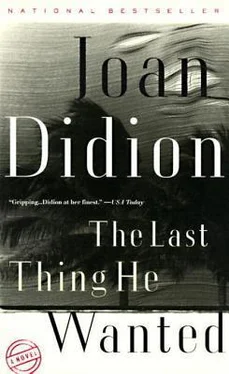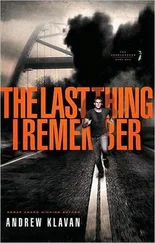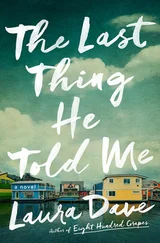She had some cash, there were places she could have gone.
Just look at a map: unnumbered other islands there in the palest-blue shallows of the Caribbean, careless islands with careless immigration controls, islands with no designated role in what was going on down there.
Islands on which nothing either overt or covert was under way, islands on which the U.S. Department of State had not yet had occasion to place repeated travel advisories, islands on which the resident U.S. government officials had not yet found it necessary to send out their own dependents and nonessential personnel.
Islands on which the ranking American diplomatic officer was not said to be targeted for assassination.
Entire archipelagoes of neutral havens where an American woman of a certain appearance could have got off the plane and checked into a promising resort hotel (a promising resort hotel would be defined as one in which there were no Special Forces in the lobby, no armored unmarked vans at the main entrance) and ordered a cold drink and dialed a familiar number in Century City or Malibu and let Wynn Janklow and the concierge work out the logistics of reentry into her previous life.
Just think about it: this was not a woman who on the evidence had ever lacked the resources to just get on a plane and leave.
So why hadn’t she.
The Rand analysts, I believe because they sensed the possibility of reaching an answer better left on the horizon, allowed this question to remain open, one of several “still vexing areas left to be further explored by future students of this period.” The congressional investigators answered the question like the prosecutors many of them had been, resorting to one of those doubtful scenarios that tend to bypass recognizable human behavior in the rush to prove “motive.” The motive on which the congressional investigators would settle in this instance was “greed”: CAUGHT BY GREED, the pertinent section heading reads in their final report. Elena McMahon, they concluded, had stayed on the island because she still expected someone to walk up and hand her the million dollars she was supposed to have received on delivery of Dick McMahon’s last shipment.
“Elena McMahon stayed where she was,” to quote this section exactly, “because she apparently feared that if she left she would be cheated out of or would otherwise forfeit the money she believed she was owed, i.e., the payment she claimed was due her father.”
But that was flat wrong.
The payment due her father was by then no longer the point.
The payment due her father had stopped being the point at the instant she read in the Miami Herald that her father had been certified dead at the Clearview Convalescent Lodge in South Kendall on June 30 1984.
Which happened also to be the date on the passport with the trick built into it.
My understanding is that Dick McMahon will not be a problem.
“Stop talking to the goddamn baby-sitter,” her father had said the evening she was about to leave the house in Sweetwater for Fort Lauderdale-Hollywood International Airport and the unscheduled flight that would not land in San José, Costa Rica.
She was trying to tell the nurse about her father’s midnight medication.
“Ellie. I want you to listen to me.”
“He won’t swallow it but you can mash it up in a little brandy,” she said to the nurse.
The nurse continued flicking through channels.
“Don’t let any of those guys talk you into staying over down there,” her father said. “You deliver the goods, you pick up the payment, you get back on the plane, you’re back here tomorrow. That’s my deal.”
“I thought Cheers was on two,” the nurse said.
“Get the TV critic out of here and listen to me,” Dick McMahon said.
She sent the nurse to locate Cheers in the kitchen.
“That one’s not really a nurse,” Dick McMahon said. “The one in the morning, she’s a nurse, but that one’s a baby-sitter.” He had leaned back in his chair, exhausted. “Ellie. Okay. You deliver the goods, you pick up the payment, you get back on the plane. That’s my deal.” Each time he said this it was as if for the first time. “Don’t let any of those guys mickey-mouse you into staying over, you follow me?”
She said that she followed him.
“Anybody gives you any trouble, you just tell them.”
She waited.
She could see the network of veins beneath the transparent skin of his eyelids.
Tell them what, she prompted.
“Tell them, oh goddamn.” He was rousing himself with difficulty. “Tell them they’re going to have to answer to Max Epperson. Then you call Max. Promise me you’ll call Max.”
She did not know whether Max Epperson was dead or alive or a hallucination but she promised nonetheless that she would call Max.
Wherever Max might be.
“You just tell Max I’m a little under the weather,” Dick McMahon said. “Tell Max I need him to look out for you. Just until I’m a hundred percent again. Just tell him I said that, you understand?”
She said that she understood.
Barry Sedlow had told her to be at Fort Lauderdale — Hollywood at midnight sharp.
She was to wait not in the terminal but at Post J, if she asked at the Butler operations office they would direct her to Post J.
At Post J there would be a locked gate onto the tarmac.
She was to wait at Post J.
Someone would unlock the gate.
By the time she was ready to leave her father was again asleep in his chair, but when she kissed his forehead he reached for her hand.
“You don’t remember this but when you had your tonsils out I wouldn’t let you stay in the hospital by yourself,” he said. “I was afraid you’d wake up scared with nobody around. So I slept in a chair in your room.”
Elena did not remember this.
All Elena remembered was that when Catherine had appendicitis she herself had slept on a gurney in Catherine’s room at Cedars.
Her father’s eyes were still closed.
He did not let go of her hand.
These were the next-to-last words her father spoke to her:
“You never even knew that, see. Because you were a winner, you took the whole hospital deal like a winner, you didn’t wake up once.”
“I did wake up,” she said. “I do remember.”
She wished she did.
She hoped Catherine would.
She held his hand until his breathing was even, then walked to the door.
“This payday comes in,” he said when she opened the screen door, “for the first time in my life I’ll have something to leave you.”
“I did wake up,” she repeated. “I knew you were there.”
By the way.
I saw your dad.
He says hi.
I’m keeping him in the picture.
In fact I know why Elena McMahon was still on the island.
Elena McMahon was still on the island because of what she had known since the instant she read in the Miami Herald that her father had been certified dead in South Kendall on the same day the passport with her photograph on it was supposed to have been issued in Miami. What she had known since that instant was this:
Somebody out there was playing a different game, doing a different deal.
Not her father’s deal.
A deal her father had not known about.
Her father’s role in this deal he had not known about was to have been something more than just assembling the shipments, the shipments that had over the course of the spring refocused his dwindling energy, his flagging interest in staying alive. Her father’s role was to have begun once he arrived on the ground to collect the million-dollar payday.
Consider her father: a half-crazy old man who had spent his life dealing merchandise that nobody would admit they wanted dealt, an old man whose interest in who used his merchandise was limited to who could pay for it, an old man whose well-documented impartiality about where his merchandise ended up could allow him to be placed on the wrong side of whatever was going to happen on this island.
Читать дальше












